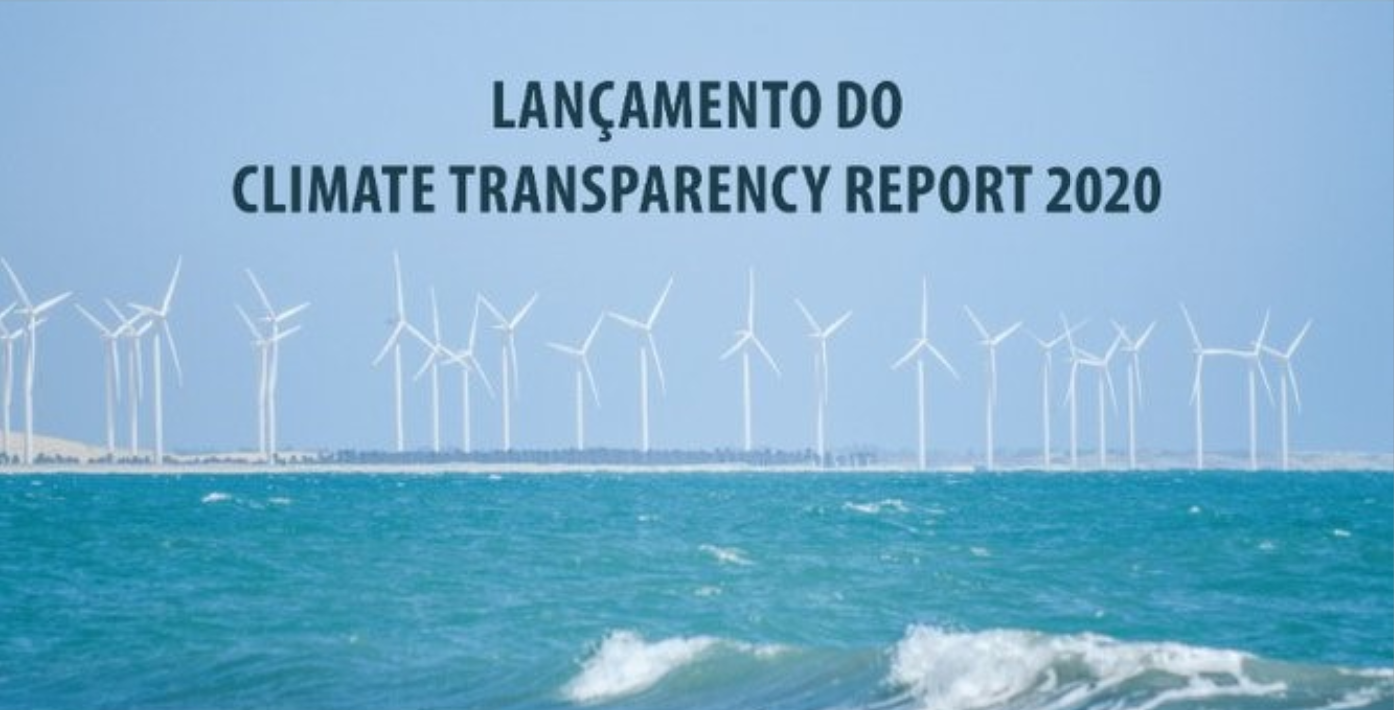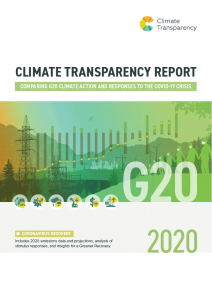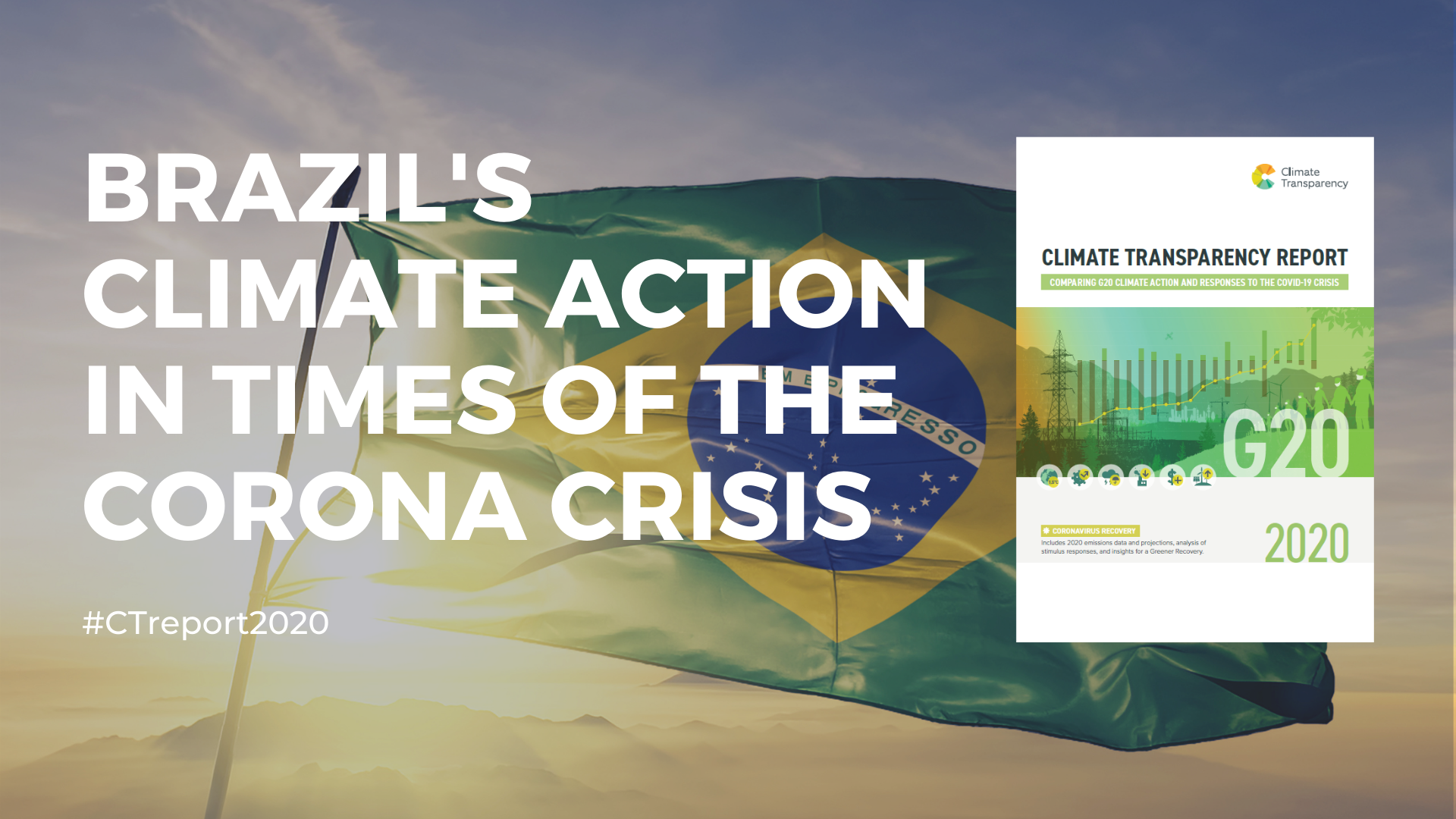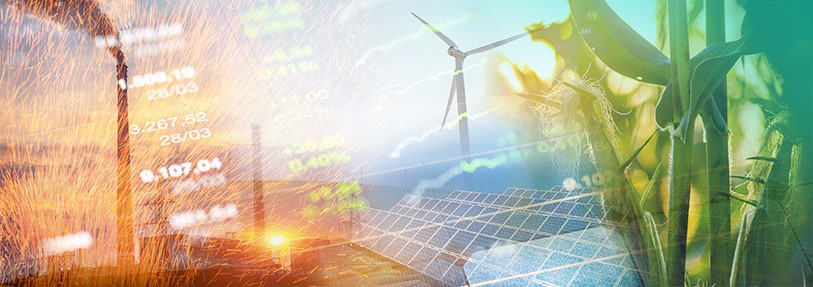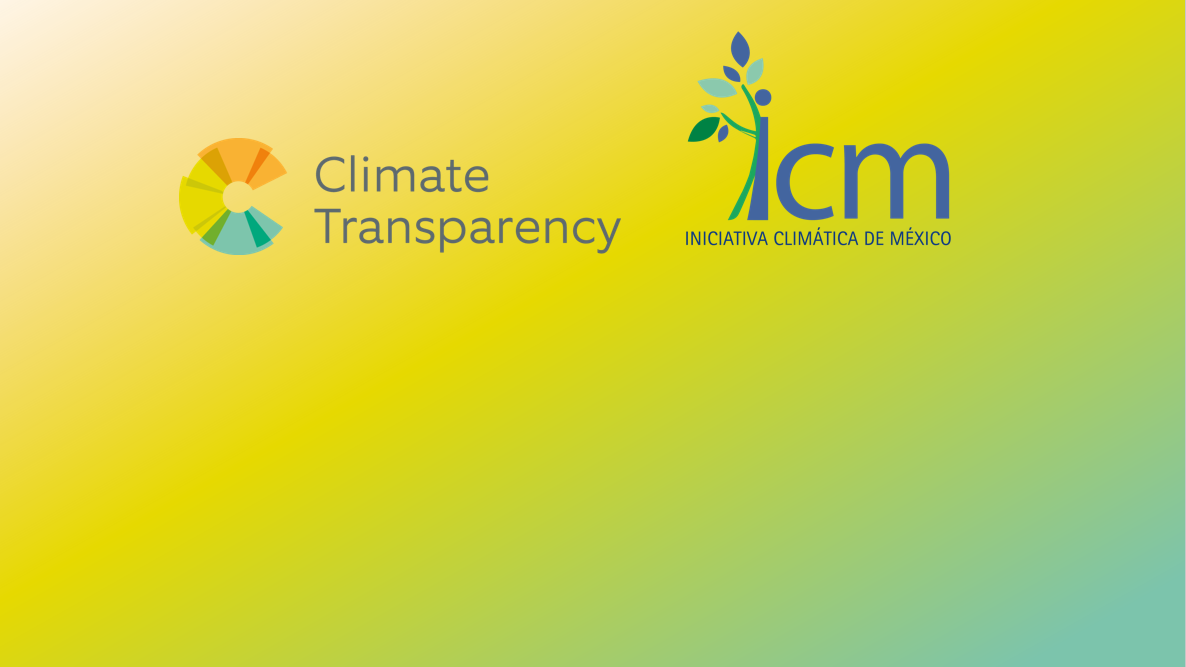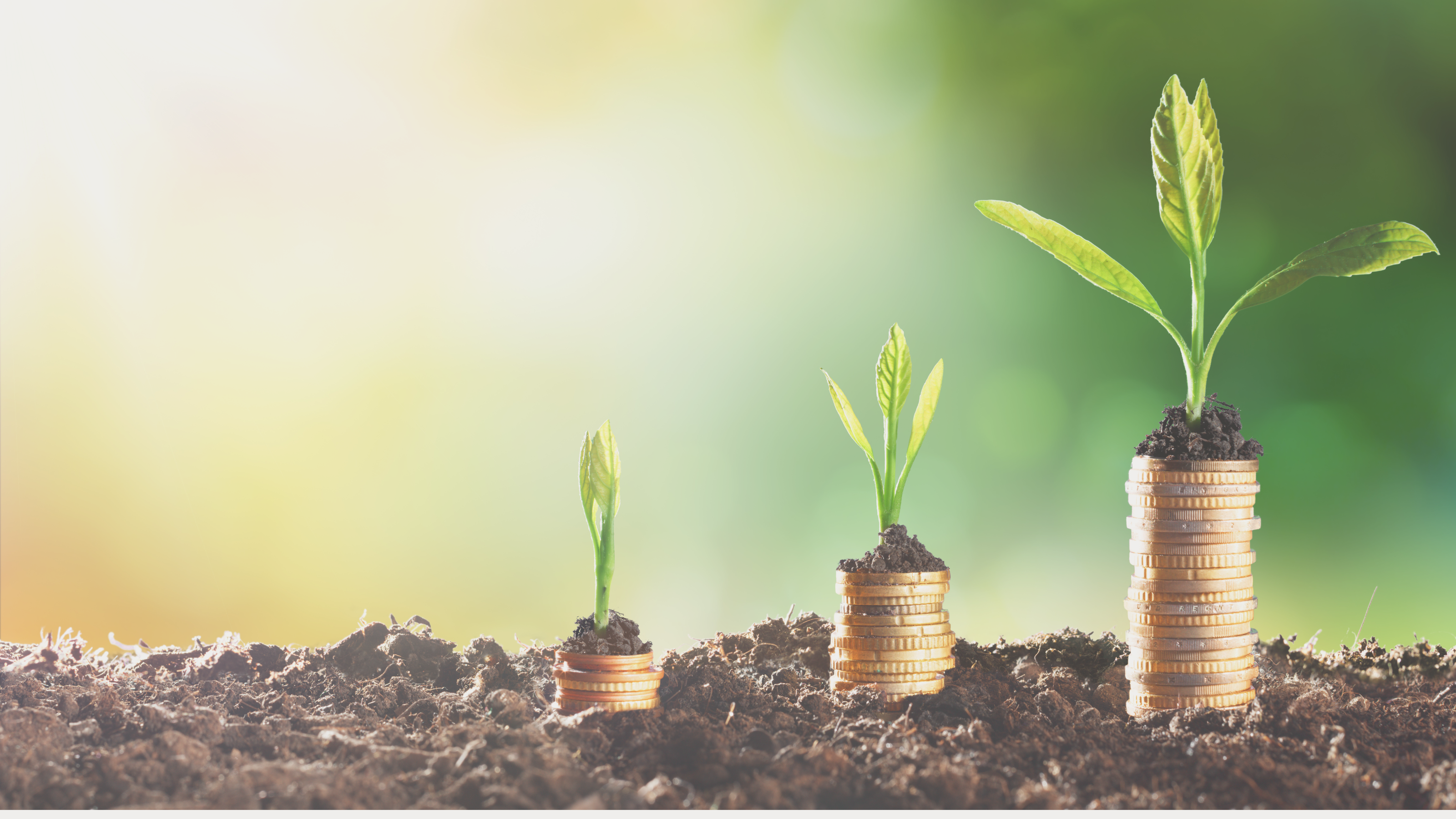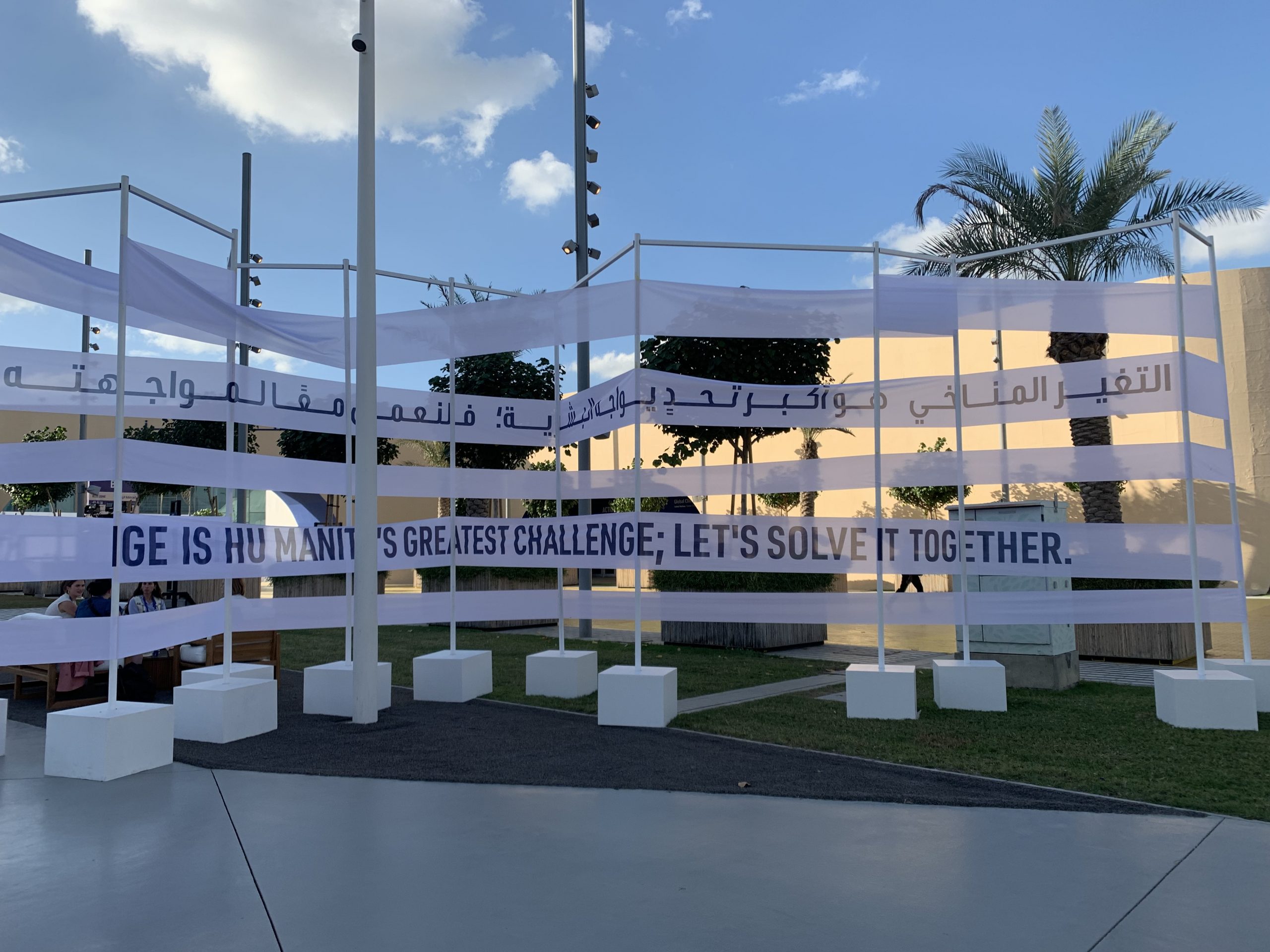On 25 November 2020 CentroClima, Climate Transparency’s partner organisation in Brazil, hosted an online event on the occasion of the launch of the Climate Transparency Report 2020. The event gathered over 400 participants, among whom were many experts and relevant stakeholders in the field, discussing how to foster ambitious climate action in Brazil and especially how to reduce deforestation in the country.
In Brazil, deforestation is of mayor concern regarding the country’s emissions. Between 2012 and 2019 the level of deforestation grew by 122%. If deforestation rates reach levels like in the 1990s or early 2000s, the NDC targets set by Brazil will not be achieved.
After an introduction given by Gustavo Pinheiro (Instituto Clima e Sociedade), Prof. Emilio La Rovere (CentroClima) referred to challenges such as the level of emissions and deforestation. In addition, he highlighted the general conditions for Brazil to reach a low carbon economy in the long term aligned with the objectives of the Paris Agreement.
Afterwards, Alvaro Umaña, Co-Chair of Climate Transparency, gave an inspiring speech on the importance of transparency and the challenge to reduce emissions and stop deforestation in Brazil.
Subsequently, William Wills (CentroClima) presented the Climate Transparency Report 2020 and the Brazilian Country profile, highlighting the major trends of main indicators and relating them to the economic and social pathway of the country in the last decades. In addition, Mr Wills warned that Brazil is among the countries most vulnerable to extreme events that are already being intensified by climate change and that those will become more deadly in a 1.5°C warming scenario.
Following, Dr. André Guimarães (Brazilian Climate, Forest, and Agriculture Coalition) presented recent trends on deforestation and how to get back on track of zero deforestation in Brazil. He stated that in order to resume and intensify enforcement actions, it is necessary to support and expand the use of intelligence and expertise from Ibama, ICMBio and Funai, aiming at accountability for environmental crimes through agile, wide and efficient punishment of violators. In this sense, it is important to fully comply with the law in force. The use of technology to carry out this action is also of crucial importance. The resumption of Ibama’s Remote Control Operation, successfully implemented in 2016 and 2017, must be strongly considered.
Afterwards, Viviane Romeiro (WRI, Brazil) presented a recent study from WRI on a new green economy for Brazil. She highlighted policies capable of reducing poverty and inequality, contributing to the achievement of economic and sectoral goals, stimulating sustainable economic growth and making Brazil more resilient to future pandemics and other risks, such as climate change and the destruction of ecosystems. The study presents a series of elements which show that Brazil has never been more able to implement this new economy and how much the country and its people would benefit from it.
After the presentation Gustavo Pinheiro moderated a debate among the speakers and responded to questions from the audience.
Watch the recording of the event here.
NATIONAL PRESS RELEASE
2020
AGENDA OF THE LAUNCH EVENT IN BRAZIL
Infographics - Brazil
Why and how to raise climate ambition in Brazil?

